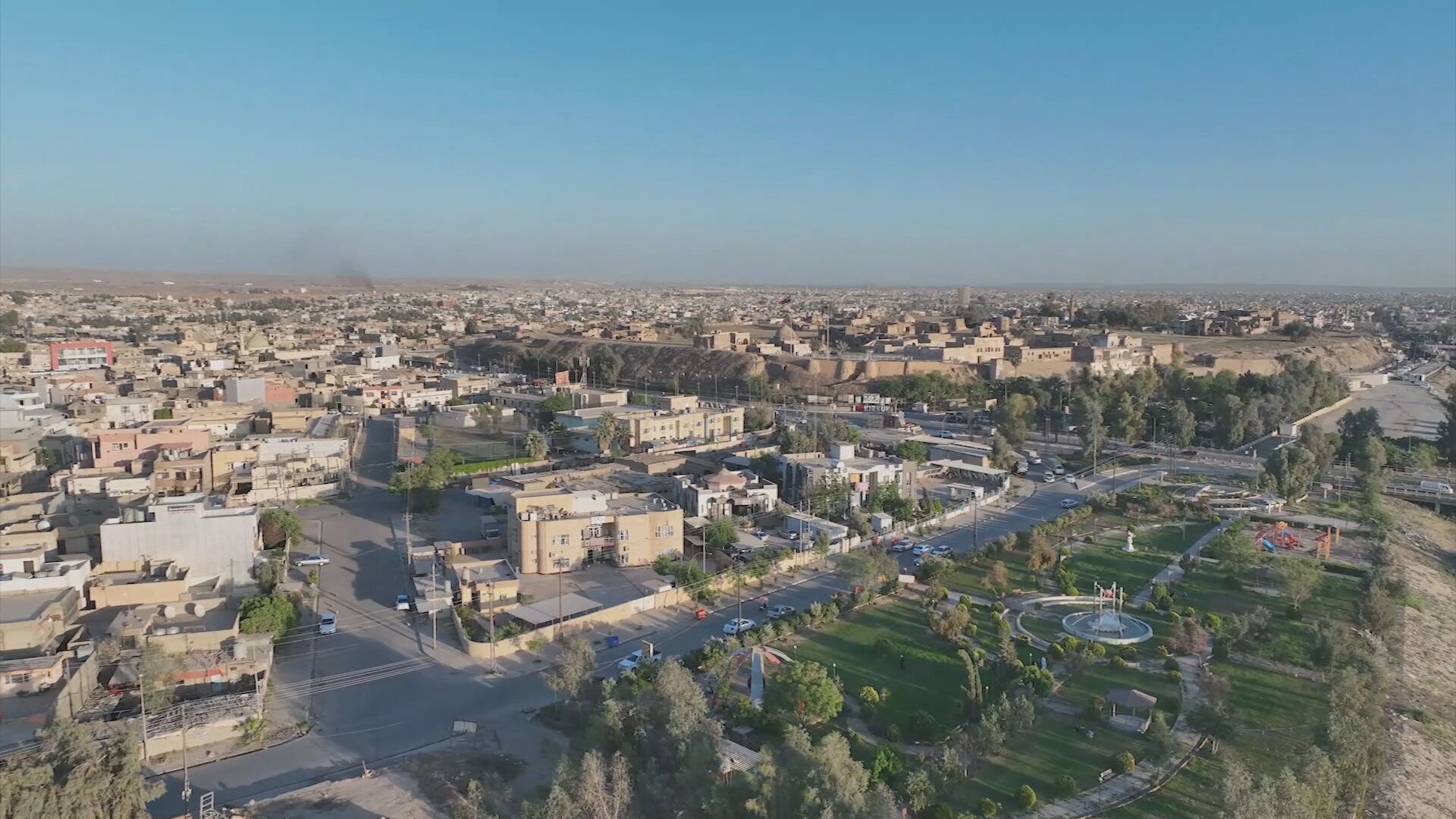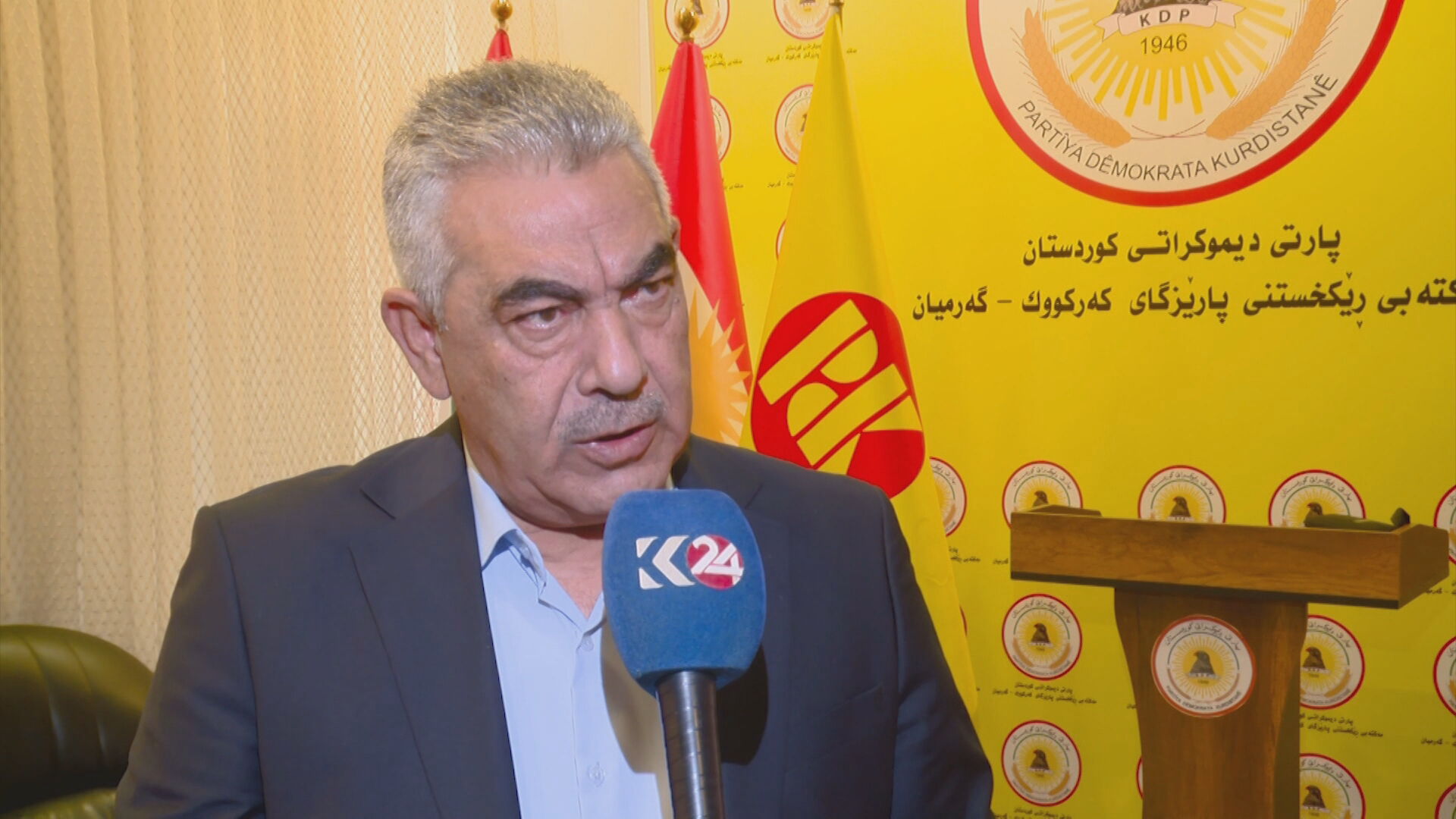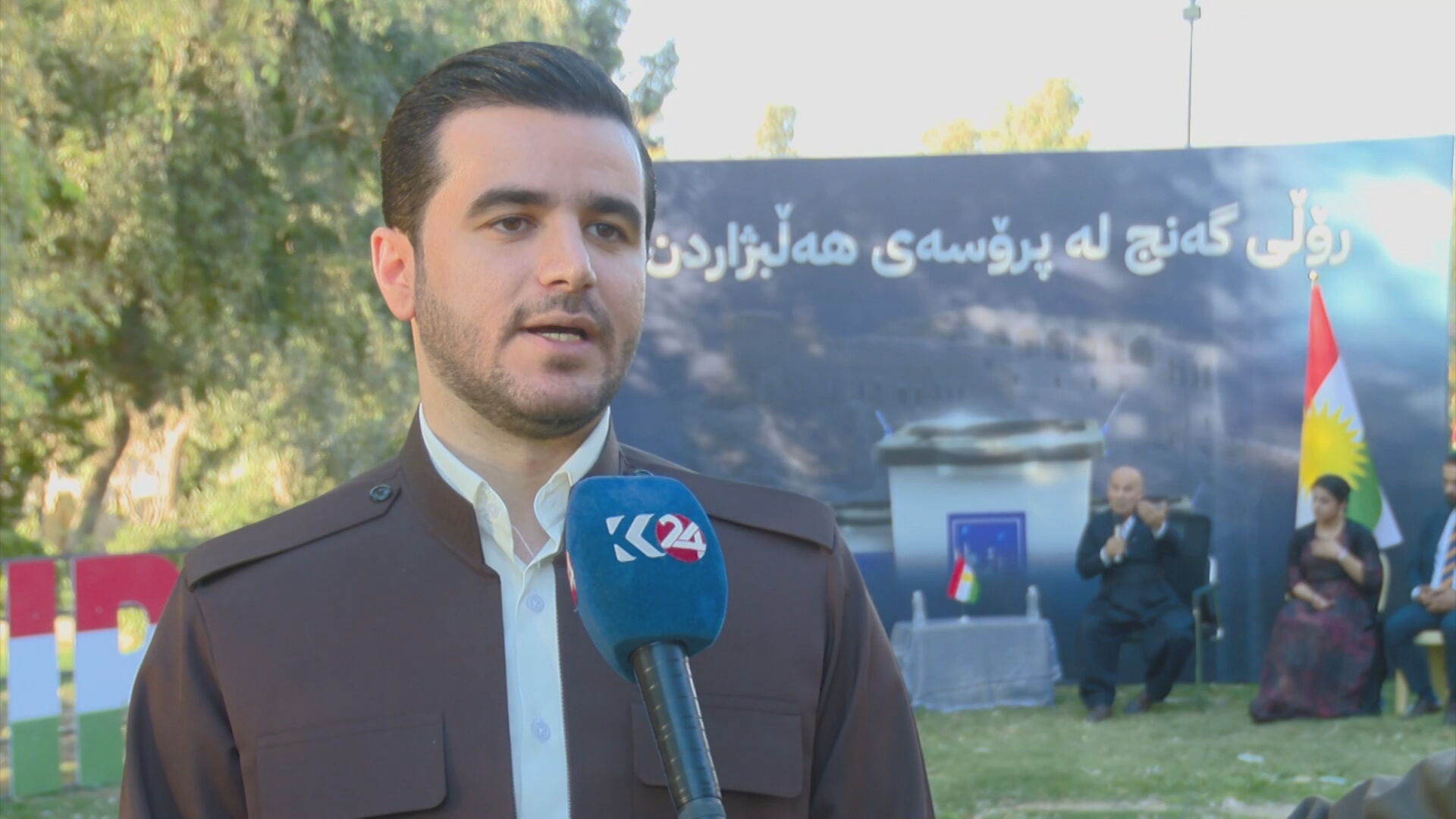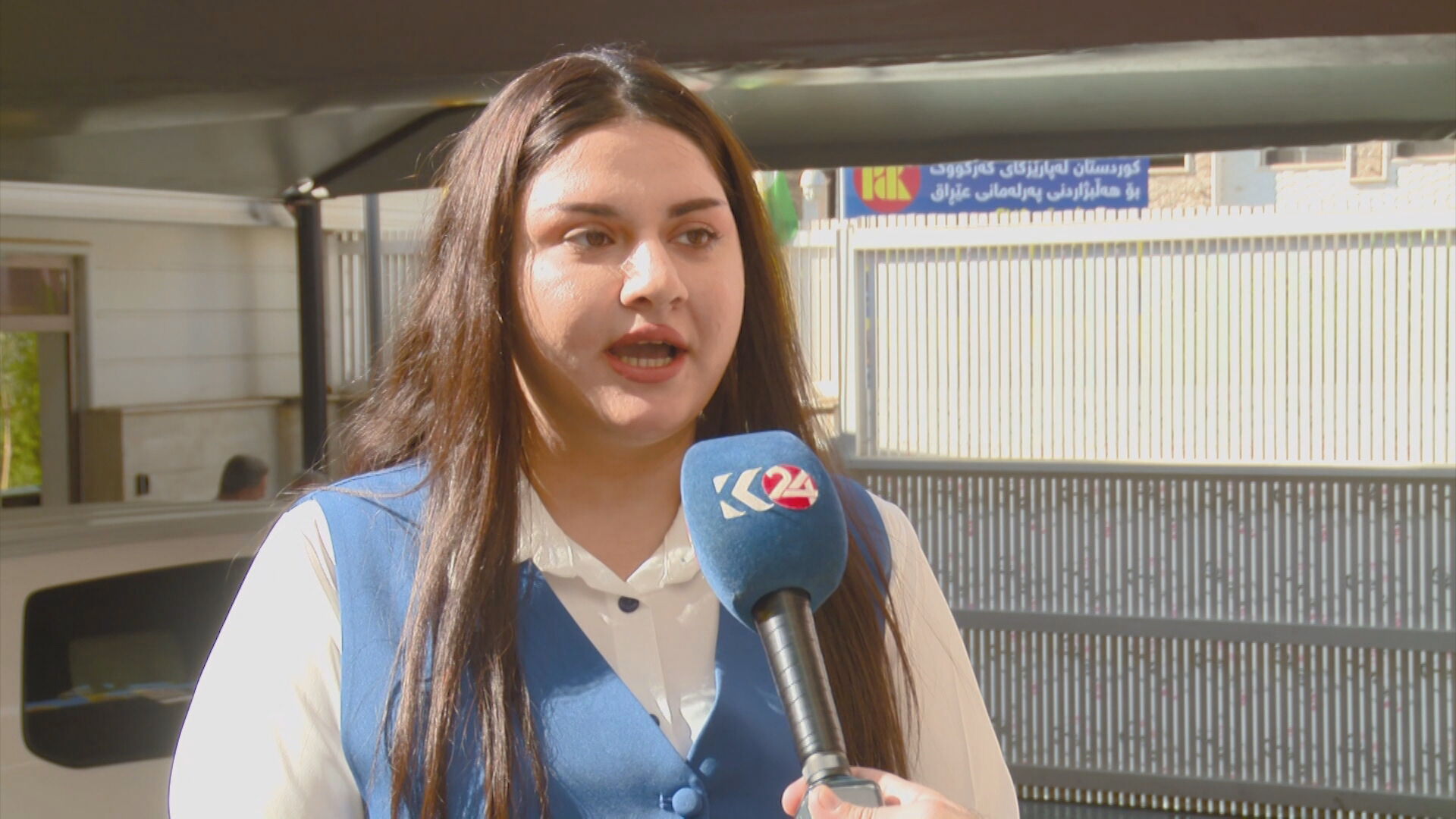Kirkuk Citizens Rally Behind KDP’s List 275 as Key to Constitutional Rights and a Unified Kurdish Front
Kirkuk citizens are rallying behind KDP's list 275, seeing it as the key to implementing the constitution and securing Kurdish rights in the upcoming Iraqi election.

ERBIL (Kurdistan24) – With the crucial Iraqi parliamentary elections just days away, a powerful and unified message is resonating through the streets and communities of Kirkuk: for the citizens of this diverse and contested city, the path to implementing the constitution and securing their long-denied rights runs directly through the Kurdistan Democratic Party's (KDP) list 275.
In a groundswell of grassroots support, from teachers and university students to displaced families vowing to return to vote, the KDP's campaign in Kirkuk has become a focal point for a community determined to reclaim its political voice, strengthen the Kurdish position, and ensure that their representatives in Baghdad are true and effective defenders of their land and their legitimate rights.
This surge of focused energy is part of a broader, highly organized strategy by the KDP to not only increase its number of seats in the Kurdistani territories but also to significantly boost its overall vote count, a key component of its ambitious national campaign to secure "one million and more" votes.
For the KDP and its supporters in Kirkuk, this election is not just about representation; it is a critical battle to reverse years of marginalization and to send an unequivocal message to Baghdad that the constitutional rights of the people of Kirkuk can no longer be ignored.
A central and logistically challenging element of the KDP's strategy in Kirkuk is the mobilization of the thousands of displaced families who were forced to flee the city and now reside in Erbil and Sulaimani.
The KDP Leadership Council in Kirkuk has recognized that the participation of these more than 10,000 voters is not just a numerical advantage but a powerful political and moral statement. The party has established a dedicated operations room to facilitate the return of these families on election day, November 11.
Luqman Ahmed, the spokesperson for the KDP's Kirkuk-Garmian Leadership Council, confirmed the scale of this effort to Kurdistan24.
"All the displaced people within the borders of Erbil and Sulaimani have been contacted, and we have provided them with transportation so that they can come back and vote on election day," he stated.
This undertaking is more than a logistical exercise; it is an act of political pilgrimage, a collective return to the homeland for the express purpose of defending it through the ballot box. Ahmed's appeal to these families was imbued with a sense of historical significance, invoking the spirit of the 2017 independence referendum.
"We ask them to return and cast their votes like on the day of the referendum, like a carnival," he urged, framing the act of voting as a joyful and defiant celebration of their identity and their connection to their land.

This mobilization of the displaced has been a recurring and powerful theme in the lead-up to the election across all the Kurdistani territories outside the KRG's administration.
As previously reported by Kurdistan24, thousands of Kurds from Kirkuk, Khurmatu, and other areas have been preparing for this momentous journey, viewing it as a last stand to preserve their rights against a rising tide of demographic change and political disenfranchisement.
For many, like Qasim Muhammed, a displaced citizen from Khurmatu, the act of returning to vote is an assertion of sovereignty. "We want the Kurdish voice to remain in that area, because the city is the property of the Kurds," he had stated.
This perspective has been hardened by years of watching their political influence systematically dismantled in the aftermath of the Oct. 16, 2017 events, when Iraqi forces and Iran-backed militias seized control of Kirkuk.
The years since have seen a deliberate and systematic revival of the Ba'athist-era policy of Arabization, from the gerrymandering of administrative boundaries in Diyala to the banning of the Kurdish language in university exams in Kirkuk.
This has been compounded by persistent harassment of Kurdish farmers, such as the recent arrest of two farmers and the seizure of their tractors by Iraqi forces in the Sargaran subdistrict, an incident that was only resolved after the intervention of local KDP officials.
It is within this crucible of immense pressure that the Kurds of Kirkuk and other Kurdistani territories are placing their hopes in the power of a strong, unified political front in Baghdad.
The KDP's campaign in Kirkuk is also making a concerted effort to engage with a new and crucial demographic: the young, first-time voters. Recognizing that these new generations are key to shaping the future political landscape, the party is actively working among university students and other young people to increase its vote share.
The message is one of empowerment and a call to civic duty. Zanwer Peshawa, a university student, articulated the aspirations of his generation. "We want to create a role and influence through the votes of the youth, so that our representatives become defenders for obtaining the legitimate rights of our people," he said.

This sentiment—the direct link between the ballot box, effective representation, and the implementation of constitutional rights—is the core message that is resonating with voters on the ground. Liza Hussein, a teacher in Kirkuk, explained her support for the KDP's list 275 in clear and unequivocal terms.
"It is important for the implementation of the constitution in Kirkuk and the areas outside the region's administration to vote for list 275," she stated, "because it is the only list for returning rights to their owners."

Her words capture the widespread belief that a strong KDP presence in the next Iraqi parliament is the most effective, and perhaps only, vehicle for forcing Baghdad to adhere to its constitutional obligations, particularly concerning the status of the Kurdistani territories as outlined in Article 140.
The strategic importance of Kirkuk to the KDP's national campaign cannot be overstated. KDP officials in the city have expressed confidence that this election will see an increase in the party's vote share, with the ambitious goal of working alongside other Kurdish parties to win more than half of Kirkuk's parliamentary seats for the Kurdish nation.
A strong showing in Kirkuk and other Kurdistani territories is essential for the KDP to reach its national target of one million or more votes, a figure that would solidify its position as the preeminent Kurdish force in Iraq and grant it significant leverage in the post-election government formation process.
As prominent Iraqi political analyst Dr. Abduljabbar Ahmed recently noted, the Kurdish bloc has historically served as the "balance scale" in Iraqi politics, and "a government cannot be formed in Baghdad without the Kurdish component."
A strong, unified Kurdish front, led by a party with a massive popular mandate, would be in a powerful position to secure key ministerial and sovereign posts in the next federal government, ensuring that the Kurdish voice is influential in the cabinet and that the constitutional rights of the Kurdistan Region and the Kurdistani territories are at the forefront of the national agenda.
As the campaign enters its final days, the message from the streets of Kirkuk is clear. For a population that has endured displacement, marginalization, and the constant threat to their land and identity, this election is a moment of profound significance.
They are rallying behind the KDP's list 275 not just as a political choice, but as a strategic imperative, a unified and determined effort to send a powerful contingent to Baghdad with an undeniable mandate: to implement the constitution and, as Liza Hussein so powerfully stated, to return the rights to their rightful owners.
Kurdistan24's correpondent Soran Kamaran contributed to this report.